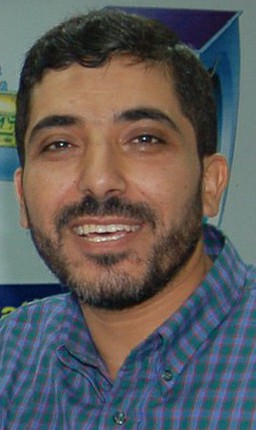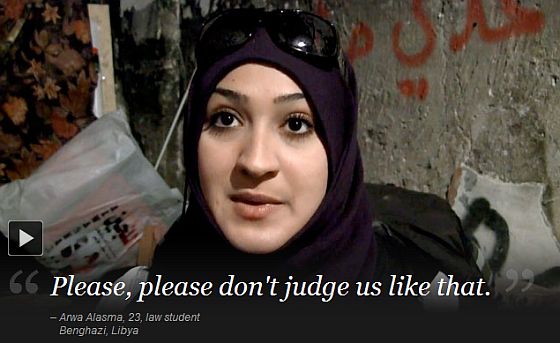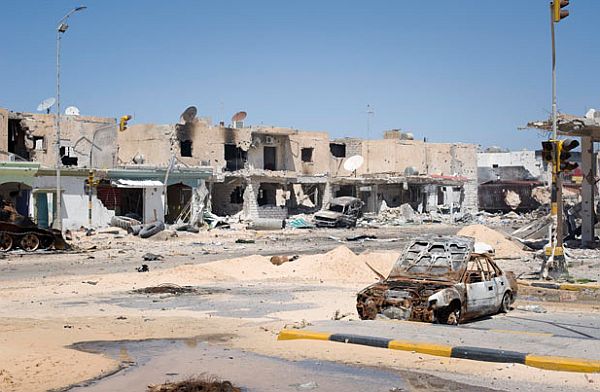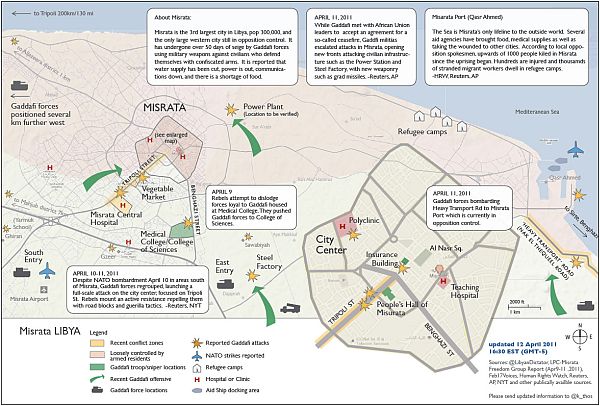On Sunday April 24, 2011 WikiLeaks began publishing 779 secret files from the notorious Guantanamo Bay prison camp. The details for every detainee will be released daily over the coming month.
Children and senile old men among detainees
The Guantánamo files reveal the often fragile physical and mental condition of Guantánamo’s oldest and youngest residents, who have included an 89-year-old man and boys as young as 14.
In 2002 Guantánamo prisoners were described as “the worst of a very bad lot” by Dick Cheney, US vice-president. “They are very dangerous. They are devoted to killing millions of Americans, innocent Americans, if they can, and they are perfectly prepared to die in the effort.”
But the internal files on some prisoners paint a very different picture. A 2002 assessment of Guantánamo’s oldest prisoner, Mohammed Sadiq, who was then 89, revealed dementia, depression and sickness. “His current medical issues include major depressive disorder, senile dementia and osteoarthritis, for which he receives prescribed treatment.” The Afghan national was also being assessed for prostate cancer. (The Guardian)
Caught in the wrong place at the wrong time
Among the most dismaying stories to emerge is that of three hapless Tajiks caught up in a roundup of foreigners in Karachi in 2002.
The trio appear to have spent almost two years being interrogated and maltreated, first at the notorious Bagram airbase, and then at Guantánamo, before being released.
The prison files reveal that they were listed as “enemy combatants” on arrival , but turned out to be entirely innocent.
The then base commander, Maj-Gen Geoffrey Miller, signed reports to the US Southern Command HQ in Florida confirming that two of the men were not enemy combatants and he was having them sent home. He added: “It is undetermined as to why the detainee was transferred to GTMO.”
Reports on the third man, Shirinov Abdulghafar Umarovich, are missing from the files, but he was reported to have also been released and returned to Tajikistan on 31 March 2004 along with the two others, Mukhibullo Abdulkarim Umarov and Mazhar Udeen.
The camp files disclose that the three were “arrested at a small library in Karachi”. Almost two years after their eventual release, a journalist for the US magazine Mother Jones, while trekking in the Pamir mountains, stumbled across Umarov back at his remote home village and tape-recorded an interview.
Umarov’s story, now confirmed by the classified prison camp files, is that the three were living in a room in the University of Karachi library, and looking for work, when they were rounded up by Pakistani police and given to the Americans. A suicide bomb had exploded and at the time, the US were reported to be paying bounties of between $5,000 and $25,000 per al-Qaida prisoner.
Umarov said he had received no compensation since. He reportedly asked his interviewer: “Why did they keep a man for two years with no reason? Why? They caught me and kept me as a prisoner of war. What war, may I ask? When was I involved? I was sleeping when they came and dragged me out of my bed.”
He described going on hunger strike, and being put in the isolation “cooler” at Guantánamo, for complaining to an investigator. “The soldiers took all my clothes and left me there.” During the day, two electric coils were used to overheat the 3ft by 5ft metal cell. At night, frigid air was pumped in. “Some prisoners wouldn’t last the night and had to be taken to the doctor,” he said. “They kept me there for 10 days – and for no reason.”
The three Tajiks were among more than 100 detainees taken to Guantánamo for little more than being in the wrong place at the wrong time. (The Guardian)
As acts of war or despair, suicides rattle a prison
By October 2004, two years into his detention at the Guantánamo Bay prison, Ali Abdullah Ahmed had established a corrosive reputation among prison officials. Mr. Ahmed’s classified file said he was a hunger striker, “completely uncooperative with interrogators,” and “had a history of aggressive behavior in the camp, often defiantly failing to comply with instructions.”
Twenty-one months later, the military announced that Mr. Ahmed, a Yemeni, and two other prisoners had simultaneously hanged themselves.
Their deaths in June 2006 — the first at Guantánamo — fueled a debate between military officials, who deemed the suicides “an act of asymmetric warfare waged against us” by jihadists seeking martyrdom, and prison critics, who interpreted them as an act of despair by men with little hope of a fair trial or release.
Since then, two other detainees have succeeded in killing themselves — one in 2007, and another in 2009. Against that backdrop, a collection of secret detainee assessment files obtained by The New York Times reveal that the threat of suicide has created a chronic tension at the prison — a tactic frequently discussed by the captives and a constant fear for their captors.
The files for about two dozen detainees refer to suicide attempts or threats. Others mention informants who pass on rumors about which prisoner had volunteered to kill himself next and efforts to organize suicide attempts. Two prisoners were overheard weighing whether it would create enough time for someone to end his life if fellow prisoners blocked their cell windows, distracting guards who would have to remove the obstructions. (New York Times)
Judging detainees’ risk, often with flawed evidence
Said Mohammed Alam Shah, a 24-year-old Afghan who had lost a leg as a teenager, told interrogators at the prison at Guantánamo Bay, Cuba, that he had been conscripted by the Taliban as a driver before being detained in 2001. He had been caught, he said, as he tried to “rescue his younger brother from the Taliban.”
Military analysts believed him. Mr. Shah, who had been outfitted with a prosthetic leg by prison doctors, was “cooperative” and “has not expressed thoughts of violence or made threats toward the U.S. or its allies,” according to a sympathetic 2003 assessment. Its conclusion: “Detainee does not pose a future threat to the U.S. or U.S. interests.”
So in 2004 Mr. Shah was sent back to Afghanistan — where he promptly revealed himself to be Abdullah Mehsud, a Pakistan-born militant, and began plotting mayhem. He recorded jihadist videos, organized a Taliban force to fight American troops, planned an attack on Pakistan’s interior minister that killed 31 people, oversaw the kidnapping of two Chinese engineers, and finally detonated a suicide bomb in 2007 as the Pakistani Army closed in. His martyrdom was hailed in an audio message by none other than Osama bin Laden.
The Guantánamo analysts’ complete misreading of Abdullah Mehsud was included among hundreds of classified assessments of detainees at the prison in Cuba that were obtained by The New York Times. The unredacted assessments give the fullest public picture to date of the prisoners held at Guantánamo over the past nine years. They show that the United States has imprisoned hundreds of men for years without trial based on a difficult and strikingly subjective evaluation of who they were, what they had done in the past and what they might do in the future. The 704 assessment documents use the word “possibly” 387 times, “unknown” 188 times and “deceptive” 85 times. (New York Times)
WikiLeaks discloses new details on whereabouts of al-Qaeda leaders on 9/11
On Sept. 11, 2001, the core of al-Qaeda was concentrated in a single city: Karachi, Pakistan.
At a hospital, the accused mastermind of the bombing of the USS Cole was recovering from a tonsillectomy. Nearby, the alleged organizer of the 2002 bombing in Bali, Indonesia, was buying lab equipment for a biological weapons program. And in a safe house, the man who would later describe himself as the intellectual author of the Sept. 11 attacks was with other key al-Qaeda members watching the scenes from New York and Washington unfold on television.
Within a day, much of the al-Qaeda leadership was on the way back to Afghanistan, planning for a long war.
A cache of classified military documents obtained by the anti-secrecy organization WikiLeaks presents new details of their whereabouts on Sept. 11, 2001, and their movements afterward. The documents also offer some tantalizing glimpses into the whereabouts and operations of Osama bin Laden and his Egyptian deputy, Ayman al-Zawahiri.
The documents, provided to European and U.S. news outlets, including The Washington Post, are intelligence assessments of nearly every one of the 779 individuals who have been held at Guantanamo Bay, Cuba, since 2002. In them, analysts have created detailed portraits of detainees based on raw intelligence, including material gleaned from interrogations. (Washington Post)

 On a cold Ukrainian winter night in mid-February 2011, a Gaza civil engineer named Dirar Abu Sisi was lying in bed in a railroad sleeper car traveling to Kiev to visit his brother, Yousef, whom he hadn’t seen in 15 years.
On a cold Ukrainian winter night in mid-February 2011, a Gaza civil engineer named Dirar Abu Sisi was lying in bed in a railroad sleeper car traveling to Kiev to visit his brother, Yousef, whom he hadn’t seen in 15 years.

